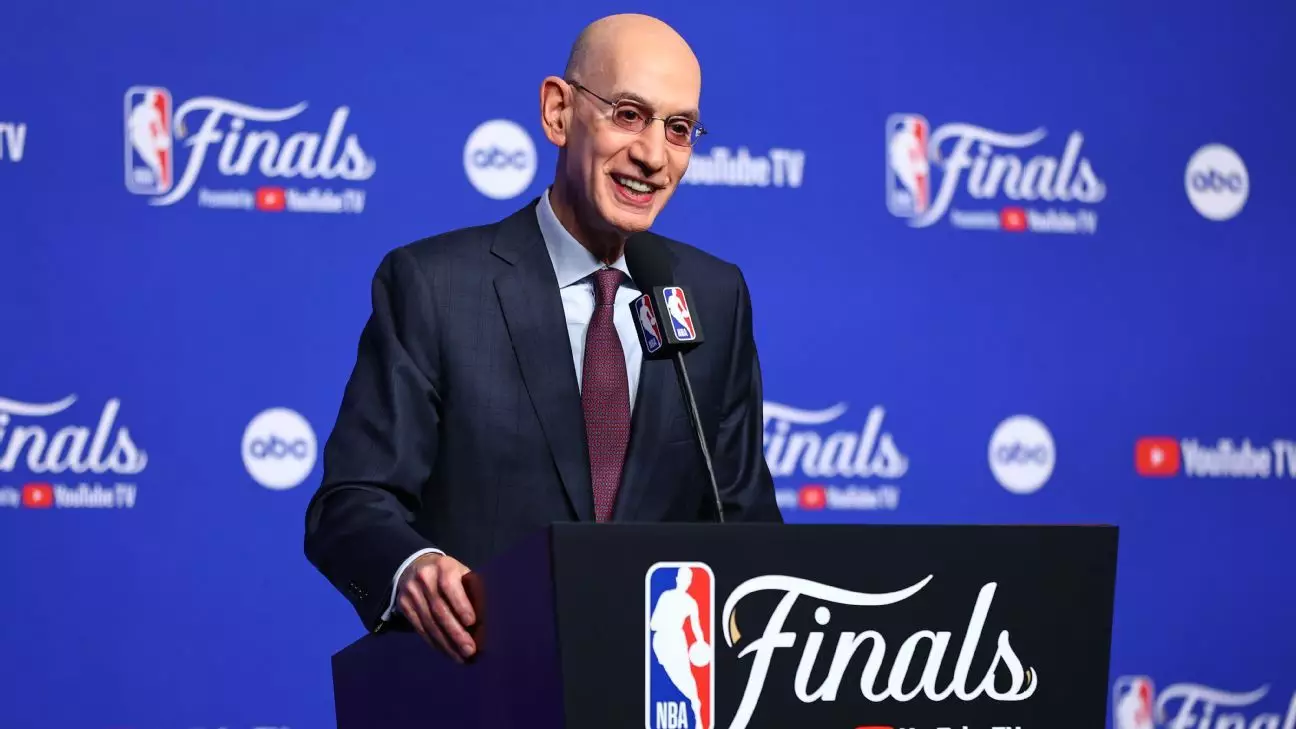The NBA’s potential expansion into Europe represents a transformative moment in the sporting landscape, one that could reshape how basketball is played, viewed, and experienced across the continent. Recent statements from Commissioner Adam Silver reveal that discussions between the NBA and FIBA about establishing a new league in Europe are ongoing. Silver emphasized that this is not a matter of quick change; rather, it’s a gradual process that could take a couple of years to materialize fully. His assertion denotes a cautious yet optimistic approach, demonstrating the complexities involved in such an expansive initiative.
Establishing a new basketball league in Europe is not merely about tossing teams together; it’s about crafting an entire ecosystem that integrates local fan bases with the global brand of the NBA. Silver has highlighted the necessity of consultation with various stakeholders, which includes existing leagues, players, media companies, and sponsors. This comprehensive strategy is crucial, as it not only addresses potential conflicts with established entities like the EuroLeague but also fosters a sense of community and belonging among European basketball aficionados. The path forward is undoubtedly laden with obstacles, but the NBA’s willingness to collaborate rather than dominate is commendable.
A Long-Overdue Opportunity
The conversation around a European league has been simmering for decades, particularly in light of the growing influence of European players in the NBA. Today, nearly 17% of NBA rosters are comprised of European talents, showcasing not only the depth of talent but also the widespread appeal of basketball on the continent. Superstars like Nikola Jokic, Giannis Antetokounmpo, Luka Doncic, and Victor Wembanyama have gained traction globally while simultaneously fueling interest in basketball across Europe.
Silver’s remarks about the underserved basketball audience in Europe resonate significantly. The NBA has a golden opportunity to tap into this dedicated fan base, fostering loyalty and expanding the sport’s footprint. Notably, creating a league modeled after the NBA could serve as a catalyst for local talents to rise and garner national attention, enhancing the sport’s infrastructure and nurturing the next wave of basketball greats.
Constructive Collaborations and Future Prospects
As discussions between the NBA and FIBA continue to evolve, it is essential to focus on constructive collaboration with existing European leagues like EuroLeague. This partnership can serve as a bridge connecting the two basketball cultures, creating a robust framework for international competition. While there may be hesitation regarding direct competition, a dual-league system could generate excitement and foster local rivalries that enhance the overall appeal of basketball.
Cities such as London, Manchester, Rome, and Munich are under consideration for hosting this new league. Each of these cities boasts passionate basketball communities, rich in diversity and history. The cultural significance of such cities cannot be understated; they provide a fertile ground for fostering deep-rooted fan engagement. The anticipated dynamics among teams, players, and fans could replicate the electric atmosphere seen during major events like the Olympics, providing both local and international audiences with thrilling basketball experiences.
Moreover, Silver hinted that a potential unveiling around the 2028 Los Angeles Olympics could serve as a strategic launching point for the new league. Given the expected global attention on basketball during the Olympics, this timing could galvanize excitement and anticipation, setting the stage for a successful inaugural season.
Transforming Global Basketball through Innovation
The ambition behind creating a new league in Europe signals a creative shift in how basketball could operate on a global scale. By expanding beyond North America, the NBA demonstrates a commitment to harnessing the universal appeal of basketball. This move will likely innovate the way teams market themselves and how they engage with fans, moving past traditional models to embrace digital platforms that cater to younger generations.
If the NBA successfully navigates this complex terrain, the prospects for basketball in Europe could be revolutionary. It could lead to a stronger and more interconnected global community, unifying basketball fans across different countries. The implications extend beyond entertainment; it becomes a cultural exchange that enhances international relations through sport.
Silver’s forward-thinking mindset exemplifies a leader who is not only considering the immediate business benefits but is also laying the groundwork for the future of basketball. As the NBA takes steps toward this ambitious European venture, the basketball community watches with eager anticipation, understanding that this might just be the beginning of a new era in sports history.


Leave a Reply